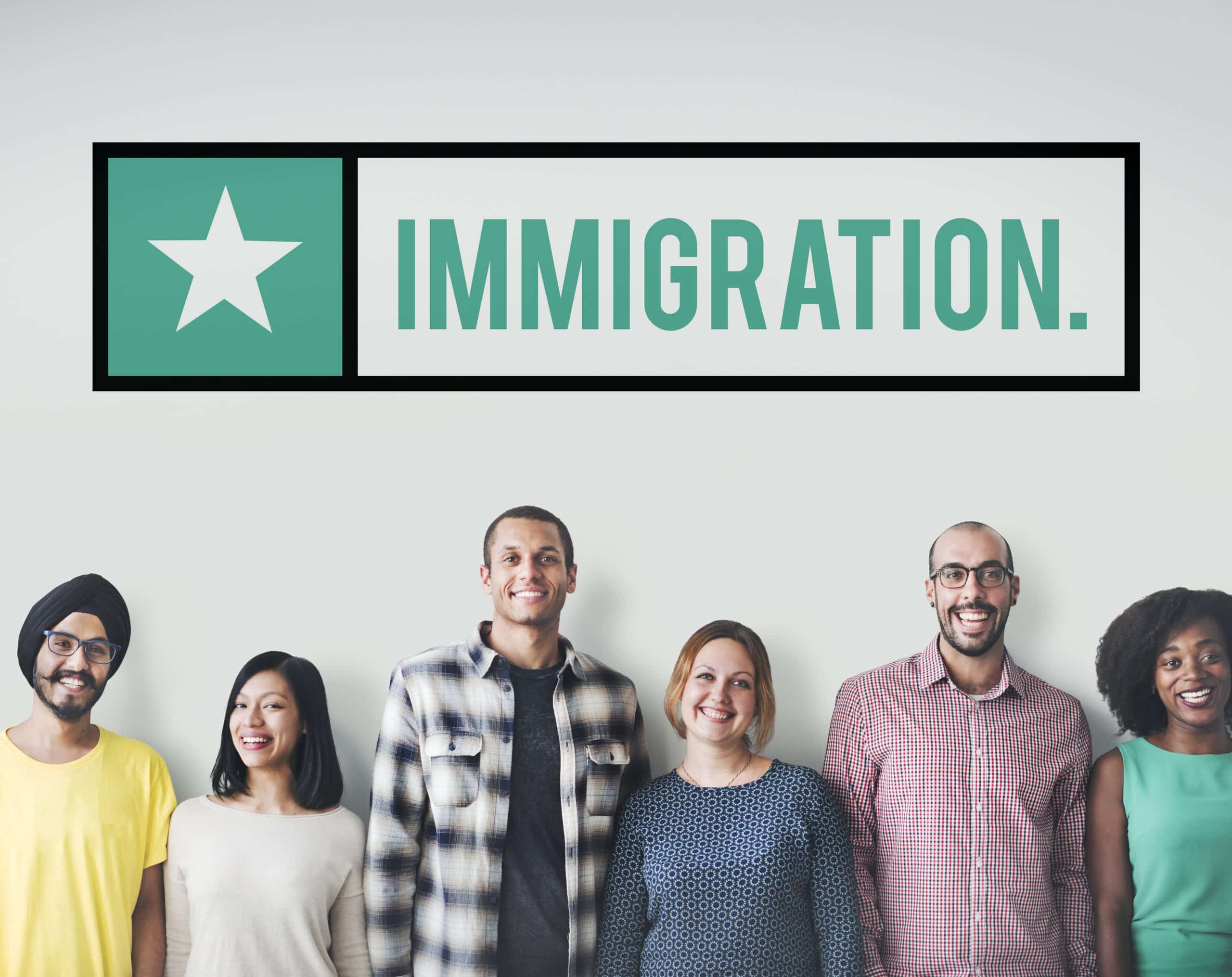Are you an immigrant looking to safely stay in the U.S.? If so, discretionary immigration benefits may be the key to unlocking new opportunities. In this article, we will explore how these benefits can provide a pathway for immigrants to establish their lives in the United States and contribute to society.
Discretionary immigration benefits refer to various programs and relief options that are granted at the discretion of immigration officials. These benefits can include deferred action, prosecutorial discretion, humanitarian parole, and discretionary waivers. By obtaining these benefits, immigrants can navigate the complex immigration system and potentially secure legal status in the country.
At The Piri Law Firm, we understand that every immigrant’s journey is unique. That’s why we are committed to helping individuals access the resources and information they need to make informed decisions about their immigration status. Our team of experts is well-versed in discretionary immigration benefits and can guide you through the process with compassion and expertise.
By utilizing discretionary immigration benefits, you can take a proactive step towards building a brighter future for yourself and your family in the United States. Join us as we uncover the potential that these benefits hold, and learn how they can positively impact your life.
Types of discretionary immigration benefits
Discretionary immigration benefits encompass a range of programs and relief options that can provide immigrants with the opportunity to establish their lives in the United States. These benefits are granted at the discretion of immigration officials, taking into account individual circumstances and equities. Understanding the different types of discretionary immigration benefits is crucial for immigrants seeking to navigate the complex immigration system.
One common type of discretionary benefit is deferred action. Deferred action provides temporary relief from deportation and allows individuals to obtain work authorization. It is typically granted to individuals who arrived in the United States as children (often referred to as Dreamers) or individuals who have been in the country for an extended period of time without legal status. Deferred action allows these individuals to live and work in the United States without the constant fear of deportation.
Another form of discretionary benefit is prosecutorial discretion. Prosecutorial discretion refers to the authority of immigration officials to exercise discretion in deciding whether to initiate or continue deportation proceedings against an individual. This discretionary power allows officials to prioritize cases based on factors such as the severity of the offense, family ties, and community contributions. By exercising prosecutorial discretion, immigration officials can focus their resources on cases that pose a greater risk to public safety, while providing relief to individuals who have strong equities in their favor.
Temporary Protected Status (TPS): TPS is granted to individuals from countries facing armed conflict, natural disasters, or other extraordinary conditions. It allows them to live and work in the U.S. without fear of deportation.
U Visa: Victims of certain crimes who have suffered mental or physical abuse and are willing to assist law enforcement may be eligible for U visas, which grant temporary legal status.
Humanitarian Parole: Humanitarian parole is granted for compelling reasons of urgency or humanitarian concerns. It allows entry into the U.S. for a temporary period.
Understanding the eligibility criteria
Eligibility criteria for discretionary immigration benefits vary depending on the specific program or relief option. It is essential for immigrants to understand the requirements and gather the necessary documentation to support their eligibility. While each benefit has its own set of criteria, there are some common factors that immigration officials consider when evaluating applications.
One important factor is the length of time an individual has resided in the United States. Many discretionary benefits require individuals to demonstrate that they have been continuously present in the country for a specified period. This requirement is often used to establish ties to the community and demonstrate the individual’s commitment to building a life in the United States.
Another factor that immigration officials consider is the individual’s moral character. Applicants are typically required to show that they have a clean criminal record and have not engaged in behavior that would deem them a threat to public safety. Demonstrating good moral character can significantly strengthen an individual’s case for discretionary immigration benefits.
The application process for discretionary immigration benefits
Navigating the application process for discretionary immigration benefits can be complex and overwhelming. It is crucial for immigrants to seek legal guidance and support to ensure they understand the requirements and submit a strong application. The process typically involves gathering supporting documentation, completing application forms, and submitting the application to the appropriate immigration agency.
When applying for discretionary immigration benefits, it is important to provide comprehensive and compelling evidence that demonstrates the individual’s eligibility and equities. This may include personal statements, letters of recommendation, medical records, and other supporting documentation. Working with an experienced immigration attorney can help ensure that all necessary documents are included and that the application presents a compelling case.
It is also important to note that the application process for discretionary immigration benefits can be lengthy and may involve multiple stages. Applicants should be prepared for potential delays and stay informed about the progress of their applications. Immigration attorneys can provide valuable guidance throughout the process and help navigate any challenges that may arise.
Common challenges and misconceptions
While discretionary immigration benefits offer a pathway for immigrants to establish their lives in the United States, there are common challenges and misconceptions that individuals may encounter. It is important to address these challenges and dispel misconceptions to ensure that immigrants have accurate information and realistic expectations.
One common challenge is the lack of awareness about discretionary immigration benefits. Many immigrants may not be aware of the options available to them or may believe that they are not eligible. It is important for organizations and advocates to provide outreach and education to ensure that immigrants have access to accurate information about their rights and options.
Another challenge is the fear and uncertainty surrounding the application process. Many immigrants may be hesitant to apply for discretionary benefits due to concerns about potential repercussions or the fear of being denied. Providing support and guidance throughout the process can help alleviate these fears and empower individuals to pursue the benefits they may be eligible for.

The role of legal representation in securing discretionary immigration benefits
Securing discretionary immigration benefits can be a complex and challenging process, making the role of legal representation crucial. Immigration attorneys who specialize in discretionary benefits can provide invaluable guidance and support to immigrants seeking to navigate the system.
An experienced immigration attorney can assess an individual’s eligibility for discretionary benefits, guide them through the application process, and advocate on their behalf. Attorneys can help gather the necessary evidence, prepare persuasive arguments, and communicate with immigration officials. Their expertise can greatly increase the chances of a successful outcome and provide immigrants with peace of mind knowing that they have a knowledgeable advocate on their side.
Case studies: Success stories of individuals who benefited from discretionary immigration benefits
Real-life success stories can serve as powerful examples of how discretionary immigration benefits can positively impact individuals and communities. These stories highlight the transformative power of these benefits and inspire hope for immigrants seeking to establish their lives in the United States.
One such success story is that of Maria, a Dreamer who obtained deferred action. After years of living in fear of deportation, Maria was able to pursue her dreams of higher education and secure a work permit. With the protection provided by deferred action, Maria was able to contribute to her community and pursue a career in the medical field. Her story demonstrates the potential that discretionary immigration benefits hold in empowering individuals to achieve their goals and contribute to society.
Resources and organizations that provide assistance with discretionary immigration benefits
Numerous resources and organizations are available to assist immigrants in navigating the process of obtaining discretionary immigration benefits. These resources provide valuable information, legal assistance, and support to individuals seeking to secure their immigration status.
One such organization is United We Dream, a nonprofit that specializes in providing legal services to immigrants. They offer free consultations, workshops, and legal representation for individuals seeking discretionary immigration benefits. Their team of experienced attorneys can guide immigrants through the application process, ensuring that their rights are protected and their cases are presented in the best possible light.
The impact of discretionary immigration benefits on immigrant communities
The impact of discretionary immigration benefits extends beyond individual immigrants and has far-reaching effects on immigrant communities as a whole. By providing a pathway to legal status, these benefits contribute to the economic, social, and cultural fabric of the United States.
When immigrants are granted discretionary immigration benefits, they are able to fully participate in society, contribute to the workforce, and pursue educational opportunities. This not only benefits the individuals themselves but also strengthens the communities they are a part of. Immigrants who are able to secure legal status often become advocates and leaders within their communities, driving positive change and promoting inclusivity.
Conclusion: Empowering immigrants through discretionary immigration benefits
Discretionary immigration benefits have the power to unlock opportunities for immigrants, allowing them to establish their lives in the United States and contribute to society. By understanding the different types of benefits, eligibility criteria, and application process, immigrants can take a proactive step towards securing their immigration status.
Legal representation plays a crucial role in navigating the complex system and advocating for individuals seeking discretionary benefits. Resources and organizations are available to provide support and assistance throughout the process.
Ultimately, discretionary immigration benefits have a profound impact on immigrant communities, fostering inclusivity and empowering individuals to build brighter futures. By harnessing the potential of these benefits, immigrants can unlock new opportunities and contribute to the rich tapestry of the United States.
